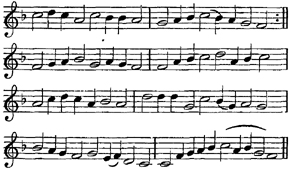Mark 16:17-20 says,
And these signs will accompany those who believe: In my name they will drive out demons; they will pick up snakes with their hands; and when they drink deadly poison, it will not hurt them at all; they will place their hands on sick people, and they will get will.
These “signs” accompany the preaching of the Gospel. They seem to accompany belief. But notice the variety of these signs—not just healing and tongues, but snake handling and drinking of poison, and exorcism. These are unqualified, unequivocal statements—that upon belief these signs will be present, and, there is no exception for failure in the passage.
However, experience shows that people die even after the laying on of hands. Christians bit by snakes get sick. Some die. Believers drink poison and die. Even though the verse doesn’t allow for any, it seems like the exceptions rule. “Therefore this passage cannot mean that all believers will do these signs or that these signs will always be present in the Church.”
It is possible that since Jesus associated these signs with those who “have believed” He was referring only those he was addressing who were believers. This seems to be affirmed in verse 20. Then the disciples went out and preached everywhere, and the Lord worked with them and confirmed his word by the signs that accompanied it. It is even possible that the use of the past tense here indicates that by the time Mark wrote his Gospel that these accompanying signs with belief had ceased.
The limitation of the signs gifts to the Apostles is also evidenced in Acts. Clearly, not everyone performed these signs. Acts 2:43 limits them to the apostles.
And many wonders and miraculous signs were done by the apostles.
Similarly, Acts 5:12 states,
The Apostles performed many miraculous signs and wonders among the people.
They were not done by all believers, but specifically by the Apostles (but for two exceptions, namely Stephen and Philip). These signs were accomplished regardless of the faith of the person healed (Acts 3), in public and private, even when they were unaware of doing it (Peter’s shadow falling on people). There were no failures, no exceptions, no faith meetings or faith requirements, no sideshow. It is the Apostles, and only the Apostles who fulfilled the promise of Mark 16:17-20.
It makes sense that these wonders and miraculous signs were limited to the Apostles. Paul refers to them in 2Corinthians 12:12 this way:
The things that mark an apostle—signs, wonders and miracles—were done among you with great perseverance.
Since they mark an apostle then it is likely that they were not performed by every believer. They are the exception - to identify an Apostle - rather than the norm. Since the requirement for an apostle was to have seen the resurrected Jesus, it is not surprising that Hebrews 2:3-4 connects these signs with those who were eyewitnesses of the Lord.
As with the signs and miracles the Lord performed, the purpose for these signs of an Apostle was to validate the claims of the gospel message (the benefit for the person healed is almost a second thought). For instance, even though it occurred in private, when Peter raised Dorcas, many believed on the Lord (Acts 9:36-42). The principle is stated in Acts 14:3,
So Paul and Barnabas spent considerable time there (in Iconium), speaking boldly for the Lord, who confirmed the message of his grace by enabling them to do miraculous signs and wonders.
The miraculous signs were given to the Apostles to substantiate their preaching of the good news of salvation.
Today’s claims of signs and wonders fail to live up the New Testament expectations and purpose. This has been true throughout church history. Since the apostolic days, no one in the history of the Church has performed miracles and healing as described in the book of Acts. This ability was restricted from the beginning—to those few to whom it was given, the gift was without fail (one exception in Mark 9:2-29), and under any circumstance (public and private; purposeful and unknowing; upon these with faith and without; willing and unwilling), for the purpose to confirm, support and validate the message of salvation.
Conclusions:
1) The sign and miraculous gifts were with rare exception for the Apostles.
2) They were called “signs of an apostle” in 2Cor 12:12.
3) They were used by the Apostles in a multitude of circumstances and situations.
4) All evidence throughout church history of the continuation of these gifts fail to meet the kind of use revealed in Acts or given in Mark 16:17-20.
5) These gifts were given to validate and support the message of salvation the Apostles preached.
Because of these observations, the gifts of signs and miracles are not included in the spiritual gift assessment survey explained in this book.
 Jesus' Death is Universal!!1 John 2:2 Unlimited Atonement of Jesus Death and Resurection
Jesus' Death is Universal!!1 John 2:2 Unlimited Atonement of Jesus Death and Resurection
















